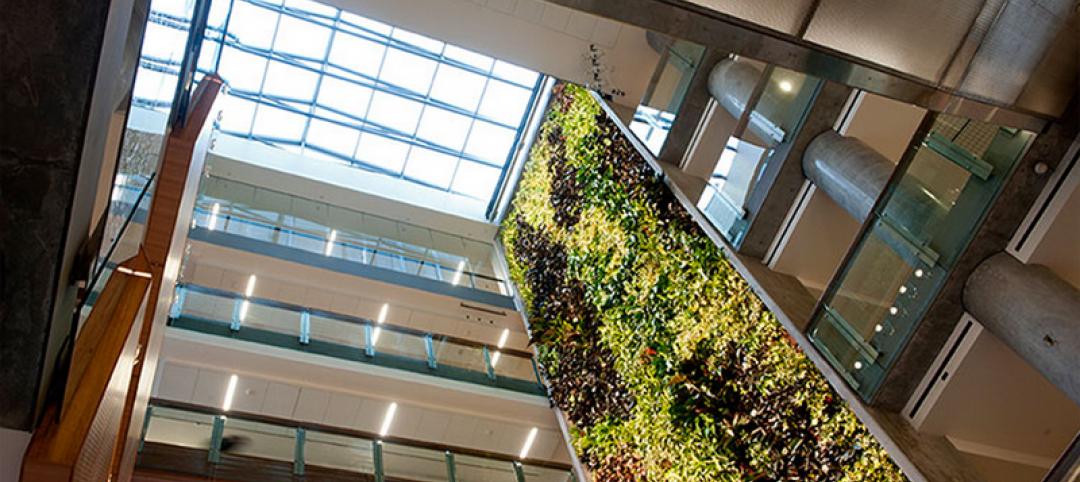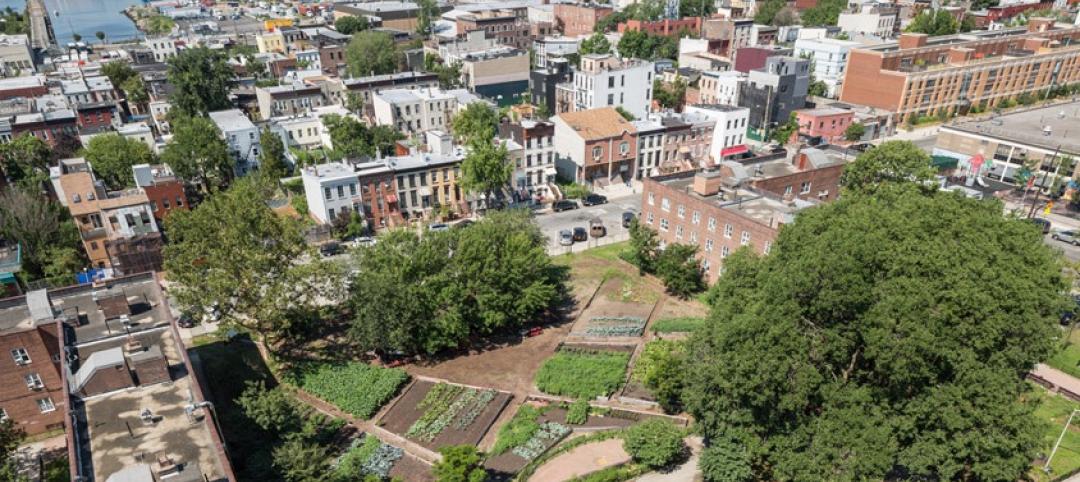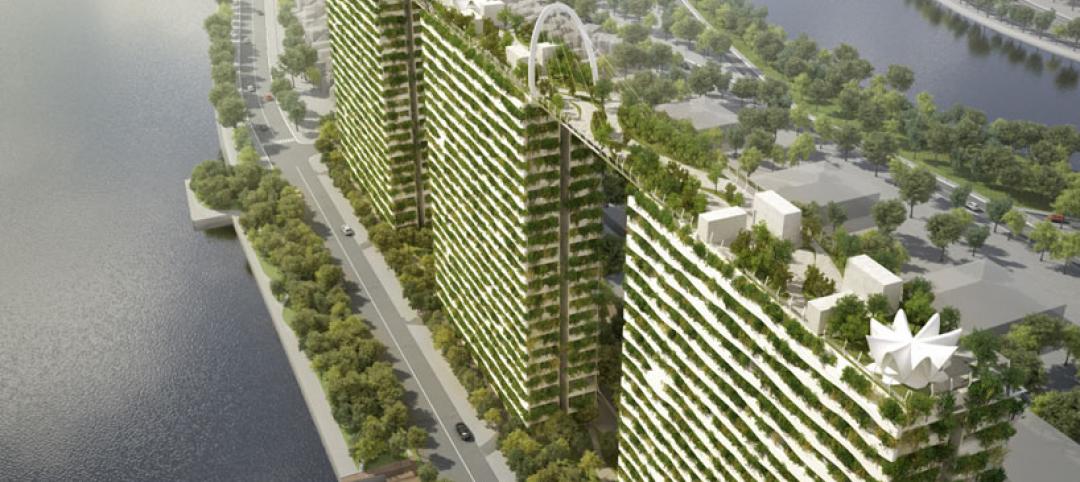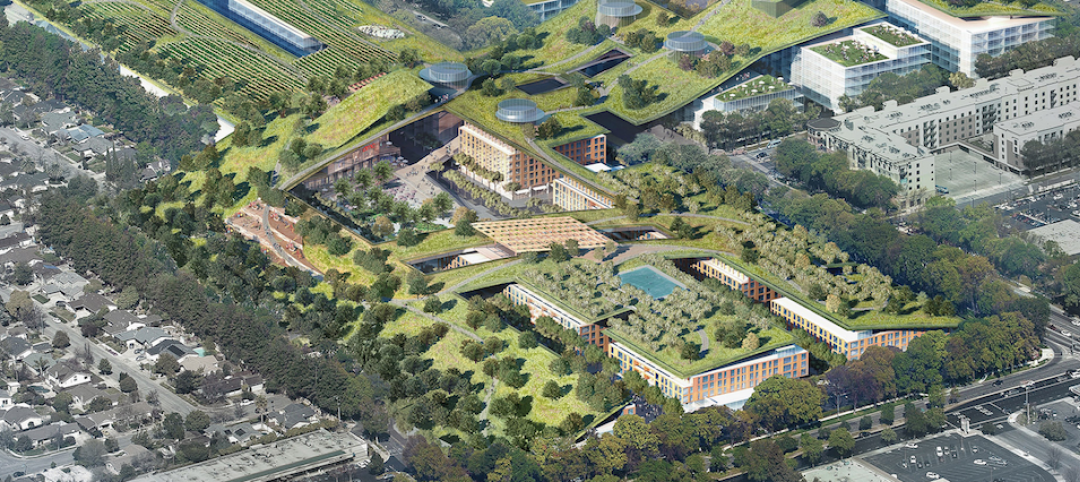The American Institute of Architects (AIA) has produced a report assessing the work of firms that are part of the AIA 2030 Commitment, a voluntary initiative to commit their practice to advancing the AIA’s goal of carbon-neutral buildings by the year 2030 that began reporting performance data in 2010.
The program has seen the number of buildings included in the report increase, but significant strides in crucial metrics used to predict building performance have been MIA. “These findings should serve as a wake-up call to architects that there needs to be greater urgency to drive improved energy efficiency across their project portfolios if we are going to reach our ultimate carbon reduction goals,” says Greg Mella, FAIA, Director of Sustainable Design at SmithGroupJJR and co-chair of the AIA 2030 Working Group, in a press release.
Highlights from the AIA 2030 Commitment: 2015 Progress Report include:
- 152 firms submitted reports – a 9% increase from 2014
- 2.6 billion gross square feet (GSF) represented in this data – a 8% increase
- 5,982 whole building projects have been accounted for in this report – a 37% increase
- 4,461 interiors only projects reported – a 16% increase
- 614 design projects are meeting the 60% energy reduction target – a 42% increase
- 38% average Predicted Energy Use Intensity reduction reported by firms – an increase of 1%
- 10% of total GSF meeting the previous 60% carbon reduction target – a decrease of 4%
- 4% of total GSF meeting the new 70% carbon reduction target
- 59% of total GSF using energy modeling to predict operational energy consumption – a 9% increase
Energy savings for the projects accounted for in the report is equivalent to about 21 million metric tons of greenhouse gas emissions. To put that into perspective, that is akin to powering 2.2 million homes for a year or running 6 coal-fired power plants.
2015 was the first year that firms used the new 2030 Design Data Exchange interactive tool that enables design teams to benchmark and target energy performance through a range of analytical aids to drive improved energy efficiency. Users of this tool are reporting that the ability to see immediate results on how their projects are performing has facilitated benchmarking and started conversations about efficiency options earlier in the design process. This has afforded them more ability to understand how the buildings will perform against baseline energy use.
For additional resources for architecture firms to develop greater high-performance building practices, click here.
Related Stories
Green | Nov 16, 2015
USGBC Working Group approves new guidance for LEED Materials & Resources Credit 4
Helps product manufacturers offer insight into material and supply chain sustainability
Green | Oct 30, 2015
First WELL-certified city district will be built in Tampa, Fla.
The plan calls for the construction of a $2 billion, 40-acre urban mixed-use development, where all buildings will pursue WELL Certification.
Sponsored | Green | Oct 22, 2015
Six-story living wall improves building performance at University of Ottawa
Benefits of the living wall include dust control and sound abatement.
Green | Oct 21, 2015
GBCI announces 2015 class of LEED Fellows
The 35 winners have demonstrated leadership within the green building movement.
Multifamily Housing | Oct 15, 2015
Montreal apartment is world’s largest residential cross-laminated timber project
Its 434 condo, townhouse, and rental units in three eight-story buildings are made from sustainably harvested wood turned into panels by Canadian company Nordic Wood Structures together with the Cree Nation in Chibougamau.
Green | Oct 5, 2015
ULI report: Commercial real estate properties cutting emissions, energy use
The new report from ULI’s Greenprint Center shows a positive trajectory of real estate properties worldwide reducing energy and water use.
Green | Oct 1, 2015
New York showcases an urban farm for public housing
Providing healthy foods and job training are two of this project’s missions.
Multifamily Housing | Sep 28, 2015
Vo Trong Nghia’s 'diamond lotus' will feature sky garden pathways linking high-rises
The 22-story housing complex in Ho Chi Minh City will have façades covered with plants and a rooftop garden that connects the structures.
Green | Sep 11, 2015
GBI releases Green Building Assessment Protocol for Commercial Buildings for public comment
Revised ANSI standard open for review through Oct. 26
Retail Centers | Aug 27, 2015
Vallco Shopping Mall renovation plans include 'largest green roof in the world'
The new owners of the mall in Cupertino, Calif., intend to transform the outdated shopping mall into a multi-purpose complex, topped by a 30-acre park.
















